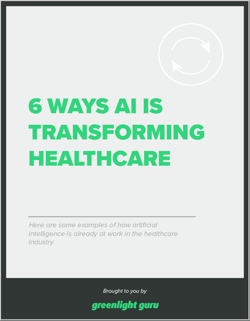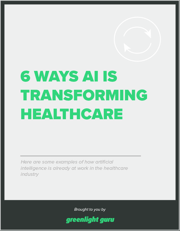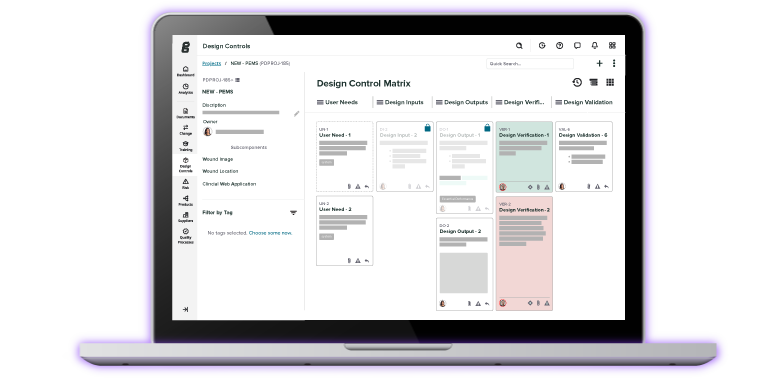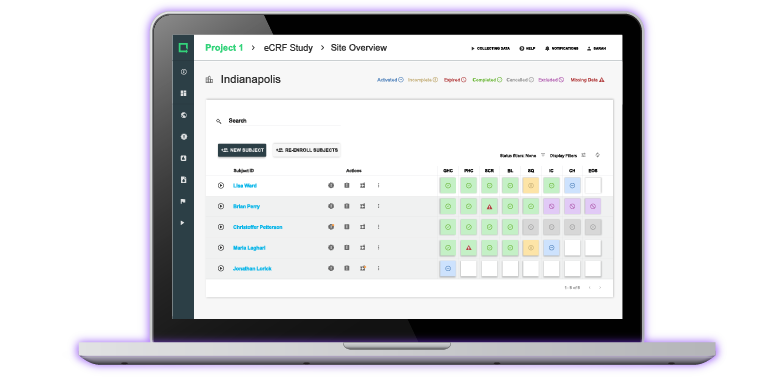How Should Artificial Intelligence in Medical Devices be Regulated?
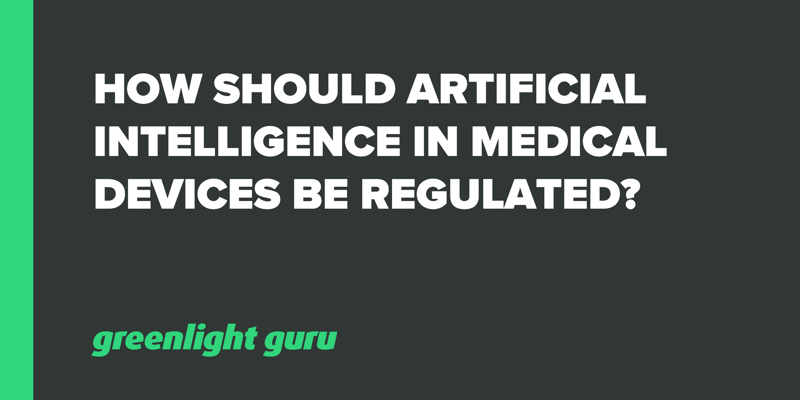
Take a close look at any global industry and you’ll find them all locked in the same race toward innovation. Technology has quickened every part of every business process, and the capability of modern tools already stretches farther and helps more users than ever before.
This is especially true in healthcare, where a recent study has projected the medical industry to outpace finance, manufacturing, and media with a compound annual growth rate of 36% between now and 2025.
According to the same study, the biggest catalyst for this explosion is the healthcare sector’s massive trove of patient data, which figures say should reach $34.7 billion by 2022.
For Software as a Medical Device (SaMD) and devices that feature software, it’s a perfect opportunity to make use of artificial intelligence (AI) and machine learning (ML) technologies.
These advanced computing techniques leverage data and can be used to turbo-boost the performance of medical devices, provide real-time feedback, or even detect hard-to-spot diseases, such as cancer.
Of course, with such great power comes a great responsibility for upholding the highest quality standards. Let’s take a look at the FDA action plan for regulating AI and ML in SaMD and what the future of MedTech may hold for such technologies.
Regulatory considerations for artificial intelligence in medical devices
Despite FDA’s long-standing reputation as a trusted regulatory safeguard for medical devices, the agency has found some difficulty in establishing an effective framework for devices with artificial intelligence or machine learning components.
Currently, the agency defines and evaluates software similarly to traditional devices. Any software used to treat, diagnose, cure, mitigate, or prevent disease is considered to be a medical device. Though this paradigm may have worked in the past, it falls short when applied to regulating AI and ML technologies.
When devising regulations for traditional products, regulators typically look at inflexible technology that works within the strict boundaries for which it has been programmed - for example, by following strict decision trees. This is also known as deterministic logic, and for the majority of medical devices this would generally be fine.
However, software-based medical devices with AI/ML operate using data-driven logic, where they are capable of learning and adapting based upon the data they receive. It’s a flexible technology that develops more over time as it processes more data.
Imagine a radiology tool to measure bone density. Whereas a traditional medical device would refer to a straightforward pass/fail check on how the device functions, emits radiation, and displays results, an SaMD equipped with AI will do the same, but also learn from the data being collected by the device.
Under the current framework, manufacturers must evaluate each individual postmarket modification to determine if it requires a premarket submission. But for AI technology that is continuously evolving and constantly improving, the agency has concluded that, “refinements are needed across the program” to drive repeatability, improve the quality of information gathered, and reduce significant time burdens.
Proposed FDA framework for Artificial intelligence & Machine Learning-based Software Products
As the Big Data era continues, FDA has put considerable effort into not only devising a proposed regulatory framework, but also working with customer feedback and heeding the advice of subject matter experts throughout the medical device industry.
In 2019, FDA published its Proposed Regulatory Framework for Modifications to AI/ML-Based SaMD in which they identify the need for a tailored premarket submission practice for any SaMD that includes artificial intelligence and machine learning technologies.
Some key takeaways from this proposed framework include:
-
The expectation is that manufacturers will follow Good Machine Learning Practices (GMLP)
-
A Total Product Lifecycle approach will be taken with regulating AI/ML software products
-
Manufacturers will submit a “Predetermined Change Control Plan” during the initial premarket review. The plan will include SaMD pre-specifications, descriptions for expected and planned device modifications, as well as algorithm change protocol, description of specific methods used to control changes for risk.
-
AI/ML manufacturers should have a quality system geared toward developing and maintaining high quality products while conforming to appropriate standards and regulations.
-
Monitoring of AI/ML is an expectation of manufacturers and a risk-based approach must be taken with development, validation and execution of algorithm changes. (This might involve submitting a 510(k) for a software change).
-
An expectation of transparency with regard to the real-world function, performance and modifications of the device. This includes sharing with users and providing periodic reporting to the FDA.
More recently, in January of 2021, FDA released an action plan that includes both findings and feedback in response to their 2019 paper. At its core, the plan still adheres to FDA’s long-standing commitment to patient safety, specifically with a “patient-centered approach to incorporating transparency to users.”
This is meant to ensure that patients understand the benefits, risks, and limitations of AI/ML-based devices. It also creates regulatory guidelines to better help manufacturers predict runways for future product releases.
Greenlight Guru helps you stay compliant with regulations and standards
AI/ML in software-based medical devices require a lot of documented evidence to show that appropriate plans and risk mitigations are in place and being followed by manufacturers.
Managing that documentation can be a tall order for medical device manufacturers—but not when you have a purpose-built QMS platform on your side. Greenlight Guru is the only eQMS designed by medical device professionals specifically to meet the unique needs of medical device companies. With the latest FDA and ISO best practices woven into every feature, you can be confident you have everything you need to bring high-quality medical devices to market while staying compliant every step of the way.
Get your free demo of Greenlight Guru today!
Looking for a design control solution to help you bring safer medical devices to market faster with less risk? Click here to take a quick tour of Greenlight Guru's Medical Device QMS software
Ryan Behringer is a Medical Device Guru and Biomedical Engineer who prides himself on adding value in all areas of bringing a medical device to market. He has R&D, Product Development, Quality, and Sustaining Engineering experience, even utilizing Greenlight Guru to achieve 510(k) clearance, from startups to mid-sized...
Related Posts
Failure Mode Effects Analysis: What Is It & When Should You Use It?
Understanding the FDA Medical Device Classification System
Why Class 1 Medical Device Companies Need Design Controls (even if it’s not required)
Get your free resource
6 Ways AI is Transforming Healthcare
